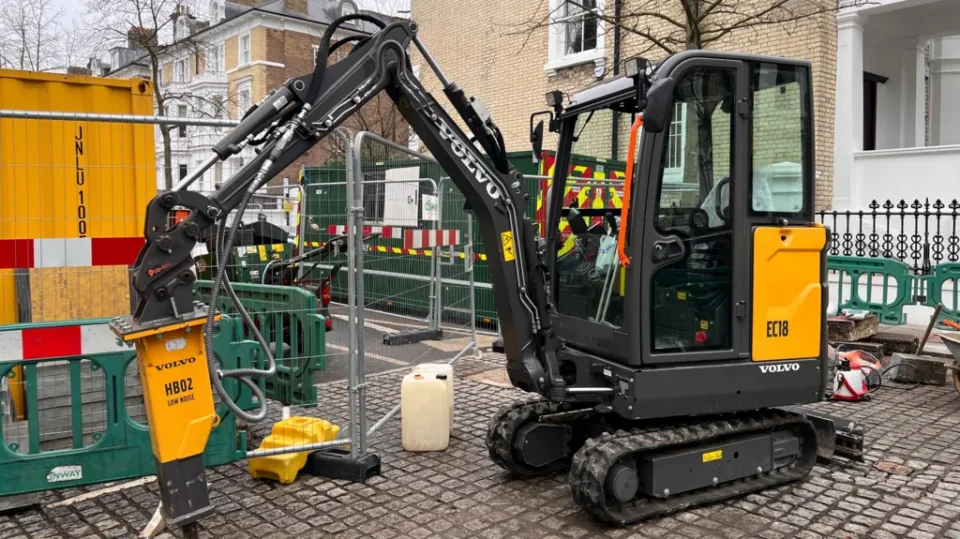Transport for London (TfL) is undertaking a six-week pilot program to explore the use of zero-emission construction vehicles, featuring what it describes as a pioneering approach to mobile recharging in the UK.
In this groundbreaking trial, which commenced on January 13, TfL has replaced conventional fossil fuel-powered machinery with an electric excavator and wheel loader.
The project is a collaboration with construction firm FM Conway (FMC), Volvo Construction Equipment (Volvo CE), and SMT.
TfL expressed optimism that these technological innovations could significantly contribute to the mayor’s ambition of achieving net zero carbon emissions in London by 2030.
The electric machinery utilizes a recharging solution provided by Charge Fairy, a UK-based electric charging startup.
TfL noted that they can track the machines’ charging status in real time while on-site, allowing their team to dispatch a charging van as needed.
This innovative approach facilitates the recharging of construction vehicles within an hour.
The construction efforts at three junctions in Redcliffe Gardens, located in the Royal Borough of Kensington and Chelsea, aim to enhance pedestrian safety by implementing raised road sections that reduce traffic speed, ensuring safer crossings, and improving bus stop accessibility through expanded pavements.
Initial findings from the trial indicate that over a fortnight, the electric excavator prevented the emission of more than 100kg of CO2, which Clever Carbon’s carbon footprint calculator equates to a car journey of 600km.
Additionally, the trial revealed a reduction in harmful pollutants compared to a diesel excavator performing the same tasks.
Carl Eddleston, TfL’s director of network management and resilience, remarked, “Prioritizing the health of Londoners is key to our mission, and we are committed to achieving our net zero goals by 2030.”
“We plan to analyze the results of this trial and continue investigating optimal strategies for decarbonizing our network construction processes.”
Mats Bredborg of Volvo CE highlighted that smaller diesel construction equipment often falls outside emissions regulations.
He stated, “As a result, these machines release disproportionately high amounts of harmful pollutants, exacerbating poor air quality and creating significant public health concerns.”
Ed Lea, founder of Charge Fairy, shared that their efforts at Redcliffe Gardens illustrated how smart energy delivery can allow electric machinery to operate throughout a full workday, addressing a major challenge in the shift to electrification in construction.
Matt Tallon from FMC added that this charging method eliminates many challenges associated with electric machinery, representing a “feasible solution for similar projects in the future.”
The construction at Redcliffe Gardens is scheduled to continue until March 28, featuring partial road closures during daytime hours and complete closures on Sunday, Monday, and Tuesday nights.


